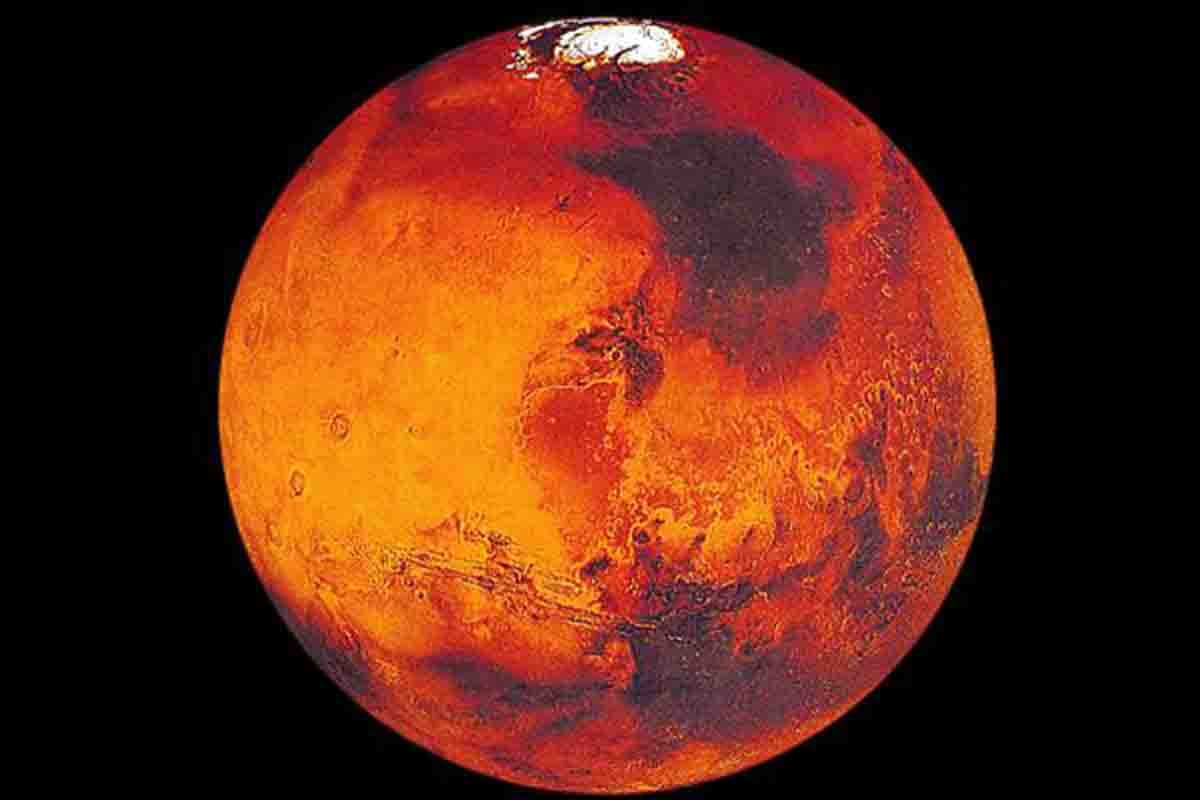
Researchers have made a great discovery, as they have identified a massive volcano on Mars, whose height exceeds Mount Everest.
The discovery, made by Pascal Lee with Saurabh Shubham, a doctoral student at the University of Maryland, was presented at the 55th Lunar and Planetary Science Conference in The Woodlands, Texas, marking a key moment in Mars exploration.
The newly discovered volcano, located within the complex and rugged terrain of the Noctis Labyrinthus region near the Martian equator, challenges previous understandings.
This area is famous for its maze of valleys, called the “night maze”, and has long been studied by scientists through satellite images.
However, the unique features of this volcano, its significant erosion and seamless integration into the surrounding landscape, have kept it hidden from public view until now.
Lee's claim that unless one is specifically looking for a volcano, identifying it will be particularly difficult highlights the volcano's elusive nature.
The implications of this discovery extend beyond simply adding a geographic feature to the map of Mars, calling for a re-evaluation of Martian geological activity and creating the possibility of future exploratory missions aimed at detecting water ice or even traces of life.
The initial phase of this research assumed the existence of a huge glacier within the maze, covered in salt deposits, a theory that emerged from data analysis conducted with the help of NASA's Mars Reconnaissance Orbiter.
This hypothesis gained further credence when it was observed that the high points in the area formed an arc, a feature of volcanoes known on Earth for their elongated, gently sloping sides.
Through careful examination and gathering of evidence, the research team identified a peak with a height of approximately 9,022 metres, exceeding the height of Mount Everest of 8,848 metres, thus classifying it as the summit of a Martian shield volcano.
This discovery not only expands our knowledge of Mars' geological diversity, but also sheds light on the planet's volcanic activity and its effects on Martian climate and atmospheric evolution.

“Total alcohol fanatic. Coffee junkie. Amateur twitter evangelist. Wannabe zombie enthusiast.”





More Stories
Is this what the PS5 Pro will look like? (Image)
Finally, Windows 11 24H2 update significantly boosts AMD Ryzen – Windows 11 performance
Heart Surgeon Reveals The 4 Things He ‘Totally Avoids’ In His Life